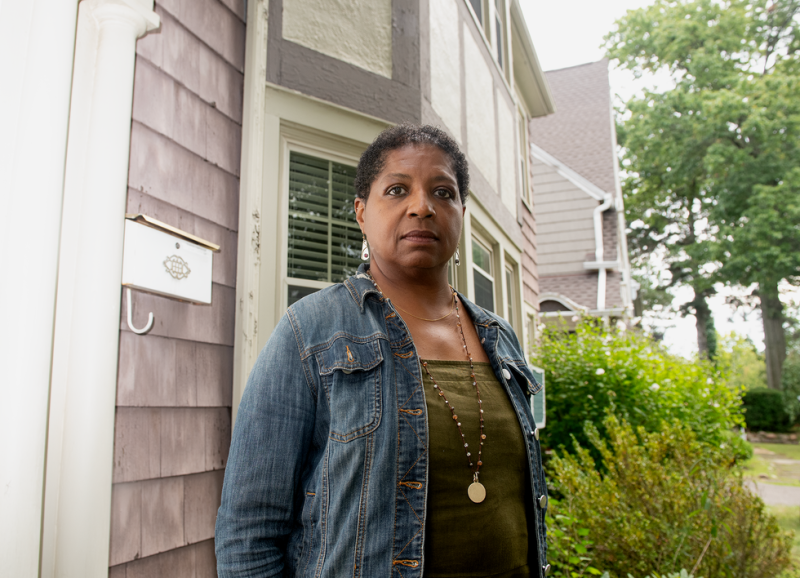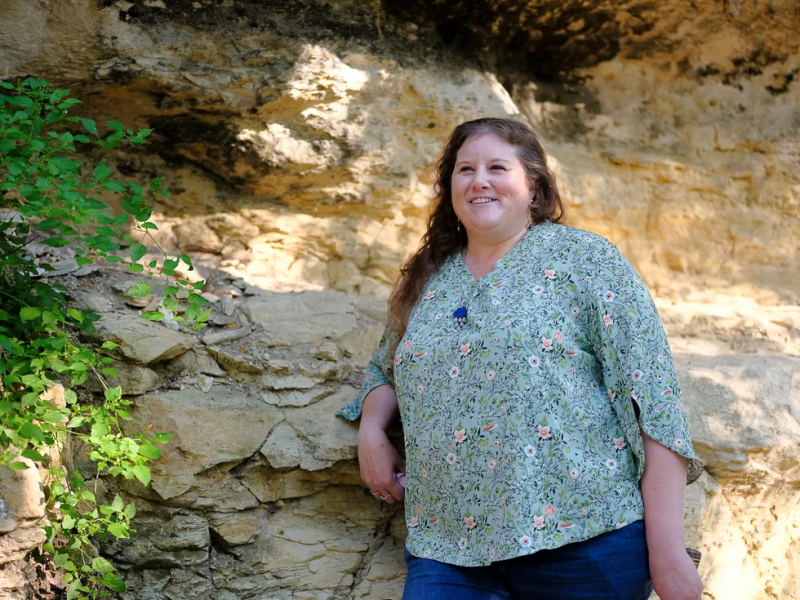From prepped to panicked: How different generations feel about retirement
When it comes to retirement savings, expectations differ across generations.
Boomers feel unprepared, while Gen Xers worry they're behind schedule, and millennials – who are navigating student loan debt on top of rising housing, child care and education costs – are feeling the squeeze, according to one Goldman Sachs survey. Meanwhile, Gen Z has been described by the investment firm BlackRock as a generation of savers "ahead of their time."
But one thing every generation has in common? Retirement savings stress. Sixty percent of more than 1,000 employees surveyed across generations worry they'll outlive their savings, according to a 2024 BlackRock survey.
People continue to view inflation as the biggest obstacle to retirement savings, according to a report in July from Charles Schwab, which found 58% of 1,000 survey participants felt that way. Other common hurdles include stock market volatility (affecting 36% of participants), monthly expenses (35%) and unexpected expenses (32%).
USA TODAY spoke to nine savers ages 19 to 65 to get a sense of retirement strategies across generations. Here are their stories.
‘I’m basically starting over with everything’
Four years ago, Kirsten Farmer had a husband with a $200,000 salary. A year later, the marriage was over, and Farmer was saddled with debt.
“I walked away with zero, and a bunch of liabilities,” said the millennial from Austin. “I’m basically starting over with everything, in my 40s.”
Like some married women, Farmer lacked the opportunity to amass significant retirement savings in some of her prime earning years. She started out as a teacher, earning less than $30,000 a year. Then she stayed home for more than a decade, raising four children.
She got the kids in the divorce. They are ages 8 to 16. She struggles to put food on the table and to keep pace with the steady drumbeat of shuttling duties and school visits.
“I can barely afford after-school care for the younger two,” she said.
But Farmer is strongly motivated to save for retirement.

“I kind of live by this chart that I read,” she said. “I know right now, at 40, I’m supposedly supposed to have three times my annual salary saved. I’m not quite there, of course. I’m hoping to catch up.”
Farmer earns about $65,000 a year as a sales support specialist for a medical benefits company. Amazingly, she now has nearly twice that much saved for retirement: $30,000 each in a Roth IRA, a 401(k), a money market account and a 403(b). A 403(b) is like a 401(k), but for public employees, and Farmer amassed those savings during the early years of her marriage.
At one point, Farmer and her husband had $150,000 in credit card debt. She says she began paying it off while still married, leveraging her husband's salary, then paid off the remaining balance with alimony payments and her earnings.
Her goal is to save at least six times her annual salary by the time she retires. She also hopes to raise her salary by 5% every year. At that rate, if she works 20 more years, she might double her salary to $130,000. In that scenario, her savings goal would be $780,000.
Farmer hopes to retire between ages 60 and 65. She wants a comfortable retirement.
“I feel like I’ve sacrificed so much of my life,” she said. “I want to go out and meet people. I want to travel. I want to be able to be in and out of my kids’ lives, and know that I’ve invested in them.”
In the meantime, Farmer lives frugally: No more yoga classes or gym memberships.
“I don’t do the weekend retreat with the girls. I don’t hang out at the bars. I don’t do any of the fun travel that people like to do in their 40s. So, my social circle is really small. I don’t do Starbucks. I don’t eat out. I don’t shop. If I get clothes, it’s at Goodwill.”
'Me and my wife, we want to travel’
You may scratch your head to think that a guy who works in a petrochemical plant in Louisiana plans to retire with $3 million in the bank.
Once Matthew Richard of Westlake, Louisiana, lays it all out, though, his goal doesn’t sound so farfetched.
Richard, 35, has been working since his junior year of high school, when he moved out on his own. He spent a dozen years in the National Guard, working convoy security in Iraq before transitioning into recruitment and retention.
After stints at an Anheuser-Busch beer distributor and as a casino dealer, Richard got a better-paying job as an operator at the local W.R. Grace petrochemical plant in Lake Charles, controlling the process of making catalysts used in production.
“It is the only business,” Richard said. “That and casinos. You have to do one or the other in Lake Charles” to earn a good living.

Richard earns $95,000 in base salary, plus lots of overtime.
“I haven’t made less than $115,000 in the six years I’ve worked there,” he said.
Richard has already saved $110,000 toward retirement, kicking in 8% of his salary, plus a 6% match from the company. He gets a pay raise of 3% or 4% a year, and he plans to put most of the extra pay toward his 401(k) “until I max it out,” he said. The maximum 401(k) contribution in 2024 is $23,000, and that figure will rise in years to come.
If Richard does all of those things and works another 27 years, retiring at 62, he expects to have “about $3.5 million” saved by then, based on his computations with a retirement calculator, assuming a 10% annual return. (He shared screenshots with USA TODAY, and the calculations look sound.)
Richard believes he will meet his savings goal, and he plans to do it alone. He is not counting on retirement savings from his wife, Brittany, who works part-time cleaning houses and is busy raising the couple’s three daughters, ages 15, 10 and 9.
“She is not on the savings train,” he jokes. “I don’t know how far on board she’s going to get. It’s a solo mission, right now.”
Housing is not a problem. Four years ago, the couple bought a $240,000 house, a five-bedroom spread on a golf course, with a VA loan at a jaw-dropping interest rate of 1.75%. His monthly payment totals $1,100.
The Richards plan an active retirement.
“Me and my wife, we want to travel, whether it’s across the country or to Europe,” he said. “We’re obviously going to downgrade from this house into a two-bedroom. And that’s pretty much our goal, relaxing with our grandkids, and traveling.”
Preparing the next generation
Margarita Reyes and her husband plan to retire in two years.
The 65-year-old pastor based in La Puente, California, has about $25,000 stashed away in an IRA account. It’s not the 10 times a person’s annual salary Fidelity recommends saving up by the age of 67, but Reyes is confident that she and her husband will make it work.
The couple is counting on their family-run industrial air compressor repair business to keep supplying a steady stream of income. Reyes' husband, Jose Reyes, plans to step down to work "in a smaller capacity" in sales after passing on the business' main responsibilities to their daughter and son-in-law. Reyes also plans to keep working part-time “here and there” in retirement.
Not having to worry about a mortgage payment will help. Reyes said they plan to sell their home for roughly $150,000 and move in with one of their daughters, which will cut monthly expenses. And with a pension from the church, Reyes said, she won’t have to worry about paying for health care.
Reyes concedes her retirement plans are “complicated,” and she and her husband, first-generation Americans from Mexico, “haven’t been the best savers.” But she’s making sure her three daughters are in a better position.
Her daughters "have learned through our experience how important it is to save for retirement. So, in some way, we have shared our experience to warn the next generation not to make the same mistakes we did,” Reyes told USA TODAY in an interview translated from Spanish.
Learning from previous generations
At 19, Stephen Lin and Matthew Shadid have a healthy head start on their retirement savings.
The college students and co-founders of Gen-Z for Financial Literacy, a nonprofit advocating for more high school financial literacy courses, each opened Roth IRAs soon after they turned 18.
While work isn't bringing in the big bucks yet – Shadid, of Wellesley, Massachusetts, is an on-campus teaching assistant, and Lin, of New York City, worked as an online tutor and interned at a private equity firm over the summer – the two have prioritized setting up automated deposits toward their retirement funds each month.
They credit their high school personal finance course, YouTube videos and lessons from previous generations for prompting them to save early.

“We've seen what our parents and older generations have gone through with 2008 and with what happened during COVID,” Lin said, referring to the Great Recession and the global pandemic. “So we’ve seen a lot of bad things happen to the market and the economy, where we understand the importance of putting money away.”
Housing market trends are also affecting Gen Z’s retirement plans, according to Shadid, who has seen peers give up on saving for a down payment. Instead, he said, that money is going into Roth IRAs.
“A lot of our peers don't really think being able to own a house is in their future,” Shadid said. “That, coupled with the fact that they are nervous and scared about saving for retirement, they've almost started overfinancing retirement rather than saving up to put a down payment on a house.”
‘I don’t want to die at this desk’
Five years after her divorce, Sharyn Lowenkamp, 58, almost can’t believe she is on track – barely – for a comfortable retirement.
Lowenkamp’s husband handled the family finances: paid the bills, managed the bank accounts, filed the taxes.
"Everything financial, he did," said the Gen Xer from Shaker Heights, Ohio.
Not until the end of the marriage, Lowenkamp says, did she learn that the couple had little to no savings.
After the divorce, Lowenkamp regrouped, refocused and took stock of her retirement savings. At the time, she had about $19,000 in a 403(b) account.
Since then, Lowenkamp has built up her retirement savings to $160,000, spread across the 403(b), a 401(k) and a pension that she plans to convert into a standard retirement account.
Lowenkamp says according to her Fidelity retirement-planning app she is nearly caught up.
“It says I’m on track. I’m at the beginning of on track,” she said. “I’m not in the danger zone anymore.”
Lowenkamp worked part-time through most of her married years as she raised two children, both now grown.

As a single mother, Lowenkamp has focused on building her salary. She now earns about $80,000 a year as a project manager at Oracle, the software company. She has been saving 12% of her pay in a 401(k). An employer match raises the quotient to 15%, or about $12,000 a year. She plans to roll future pay raises into retirement savings.
Next, Lowenkamp wants to work with a financial planner to write a retirement plan, including a savings target. She has been interviewing prospective advisers.
“My hope and plan is that I can retire at 67 and a half,” when she can claim full Social Security benefits, “but not touch my Social Security,” she said.
The longer you wait, the larger your monthly Social Security check. If Lowenkamp waits three more years, until age 70, her monthly benefit rises from $2,410 to $3,198.
Lowenkamp has been renting. Her other big goal was to buy a home ‒ and she just found one. It’s a three-bedroom colonial, 1,342 square feet, and a short walk from the banks of Lake Erie.
“My monthly mortgage will be just $300 more than my rent,” she said. And she will gain the tax benefits of homeownership.
Now, Lowenkamp hopes she can exit the workforce before she is too old to enjoy her retirement.
“I know that I don’t want to die at this desk, working from home,” she said.
Early retirement goals
Anthony Levi Tips described his generation as paranoid about retirement, “but in a good way.”
The 26-year-old mechanical engineer from Houston is stashing away 25% of his pretax income in hopes of an early retirement. If all goes well, he’ll be done with work before his 50th birthday.
He credits radio personality Dave Ramsay and online resources – including YouTube and the r/personalfinance subreddit – for pushing him to focus on investing at a young age.
“I grew up with the Internet, which means I've had information at my fingertips since I was 3 years old,” he said. “We see (financial advice) on all of our social media feeds everywhere, so I think we’re going to be better off than people anticipate.”

Gen Z is among the most confident generations when it comes to retirement, with almost 50% expecting to retire before age 60, according to a 2023 Goldman Sachs report. But the report warns that the generation's retirement plan assumptions "may be aggressive," since Gen Z faces future hurdles and realities like evolving economic conditions, potential Social Security challenges and the need for additional funding for longer lifespans.
With a six-figure salary, Tips acknowledges that putting money aside for retirement comes easier for him than others. But he’s focused on putting away as much as he can stomach – even if that means cutting back on discretionary spending in his 20s so he has more time later on for hobbies like 3-D printing, video games and travel.
“I'm going based on when my parents retired and what made them seem happy,” he said, adding that his dad retired early.
‘You can only tighten your belt so much’
Nick Joslin, 34, had a late start to retirement savings, putting away his first investment in 2020 after completing his undergraduate degree.
Four years later, he has about $35,000 saved up for retirement. Joslin has aimed to max out his contributions each year, but it hasn't always been easy.
“I kind of wish I had opened a Roth IRA when I was younger, but it was just one of those things no one really sat me down and explained to me,” said the millennial from Raleigh, North Carolina. “It was always just kind of a mystery.”
Working in research during graduate school provided health insurance and covered basic expenses, but didn’t offer much else to store away in savings. So Joslin was frugal. He avoided expensive trips and eating out, didn't spend money at bars, and sold a motorcycle in 2023 to max out that year’s IRA contributions.

“But you can only tighten your belt so much,” he said. Grocery prices have crept up over the past couple of years. So have housing costs. Joslin wants to save up at least $2 million but worries even that may not be enough by the time he retires.
“Running out of money and relying on Social Security, that's a little bit scary,” he said. “I don't want to put myself in a position where I'm a burden to my (future) children and their spouses.”
For now, he keeps plugging money into his IRA. He hopes to find a job soon that will allow him to invest in a 401(k), and said he would like to invest in a non-tax-advantaged brokerage account if he maxes out the traditional retirement accounts.
‘It’s just impossible to save’
Tracy Obarsky, 45, has been trying to save up for retirement, but life keeps getting in the way.
First there was the 2008 recession, when the company she worked for in Nevada folded and the 401(k) savings that hadn't yet been fully vested disappeared. She started to build up a 401(k) at another job, but a move to Texas to find better work required her to dip into that account to buy an RV. Then, her savings took another hit in 2019 when Obarsky and her husband needed to make a down payment on their home in San Antonio.
Obarsky – an environmental geologist – said she wanted to save more, but “life happens.” There were student loans, which she paid off at the age of 42. The car needing new brakes. Her husband’s back surgery. Inflation driving up the cost of groceries and other goods.

Today, Obarsky has about $65,000 stashed away in her 401(k) at the age of 45, less than a year’s worth of her current salary. T. Rowe Price recommends savers stash away anywhere from 2.5 to 4 times their salary at that age.
“It’s just impossible to save,” Obarsky said. “I'm just doing the best that I can.”
Her generation ‒ referred to as the "401(k) experiment” generation by Goldman Sachs ‒ was the first to primarily rely on 401(k) plans after the shift away from pensions in the 1980s, leaving that age group less time to accumulate savings. All told, less than half (40%) of Gen X respondents believed they were “very likely” to achieve their retirement savings goals, according to the July report from Charles Schwab.
After dealing with the housing market crash and the COVID-19 pandemic, Obarsky said she understands why some people in her generation are struggling to save.
“We have been strapped since graduation,” Obarsky said, later adding, "I just want to have enough to survive and not give myself a heart attack worrying about choosing between prescriptions or the electric bill."
Disclaimer: The copyright of this article belongs to the original author. Reposting this article is solely for the purpose of information dissemination and does not constitute any investment advice. If there is any infringement, please contact us immediately. We will make corrections or deletions as necessary. Thank you.







